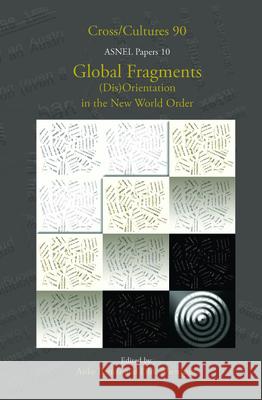Global Fragments: (Dis)Orientation in the New World Order » książka
Global Fragments: (Dis)Orientation in the New World Order
ISBN-13: 9789042021822 / Angielski / Twarda / 2007 / 361 str.
While the world seems to be getting ever smaller and globalization has become the ubiquitous buzz-word, regionalism and fragmentation also abound. This might be due to the fact that, far from being the alleged production of cultural homogeneity, the global is constantly re-defined and altered through the local. This tension, pervading much of contemporary culture, has an obvious special relevance for the new varieties of English and the literature published in English world-wide. Postcolonial literatures exist at the interface of English as a hegemonic medium and its many national, regional and local competitors that transform it in the new English literatures. Thus any exploration of a globalization of cultures has to take into account the fact that culture is a complex field characterized by hybridization, plurality, and difference. But while global or transnational cultures may allow for a new cosmopolitanism that produces ever-changing, fluid identities, they do not give rise to an egalitarian 'global village' - an asymmetry between centre and periphery remains largely intact, albeit along new parameters. The essays collected in this volume offer readings of literary, theoretical, and filmic texts from the postcolonial world. These texts are read as attempts to articulate the global with the local from a perspective of immersion in the actual diversity of life-worlds, focusing on such issues as consumption, identity-politics, and modes of affiliation. In this sense, they are global fragments: locally refractured figurations of an experience of world-wide interconnectedness.











